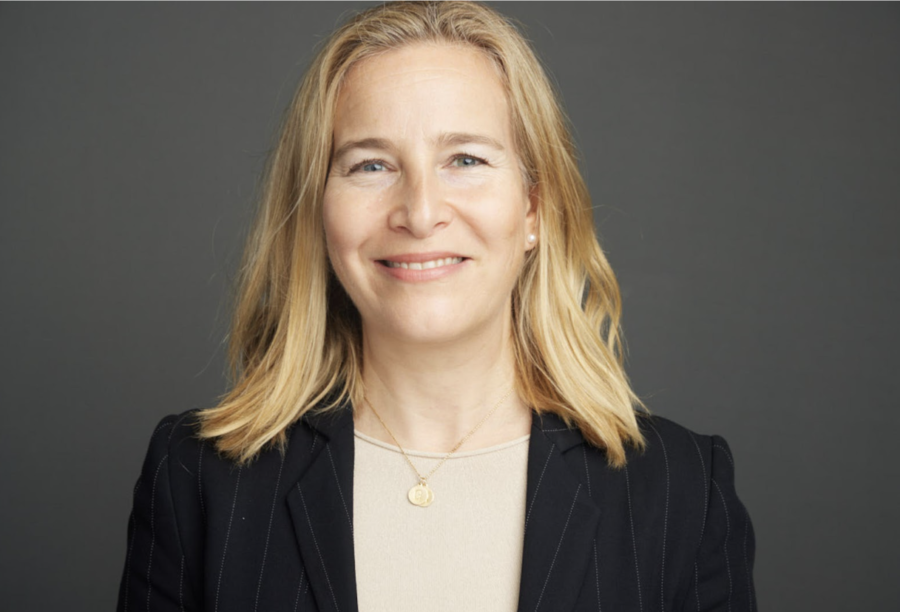Fieldston Alum ‘95 Dr. Elizabeth Kagan Arleo recently published her first book First, Eat Your Frog. It is a compelling guide for any professional working mother, but also ambitious students, and the next generation of professional working women. Written in an analytical yet compassionate voice, the book presents tips, or as Arleo puts them, “pearls,” and how to practically apply them to one’s life. Her book is aspirational and inspirational. As Professor of Radiology at Weill Cornell Medical College, Attending Radiologist at the New York Presbyterian Hospital, President of the American Association for Women in Radiology, and Editor in Chief of Clinical Imaging, Arleo aspires to live life intentionally and thoughtfully, she also inspires us to live our best lives professionally and personally, at peace and ease. She calls to action a new manifesto to help calm the overwhelmed: “May we find enjoyable and meaningful the process of striving to cultivate both a satisfying personal and professional life.”
As a radiologist living in New York City and part of the sandwich generation raising three young children while helping elderly parents, Arleo explains what kindled her to write this. She cites a 2011 Forbes study indicating that 95 percent of working mothers feel overwhelmed. The pandemic exacerbated this sense of chaos, with headlines reading, “Working Moms Are Reaching a Breaking Point,” as the stress of online school, work, and home responsibilities brought many working women to the edge, barely hanging on. While giving lectures on clinical care, research and education, Arleo found herself fielding more questions about work-life balance. One night, as she was rehearsing a speech, her eldest daughter Sophia, Fieldston Class of ‘26, overheard and recommended that she write a book on this topic. From studying for her medical boards while breastfeeding to asking her male bosses for longer maternity leave than the four weeks typically given to residents, Arleo has much to share, ascertaining timeless wisdom she has culled from “trusted advisors” throughout the ancient and modern eras.
Arleo’s first pearl, the book’s title, comes from Mark Twain. It essentially means getting the most important task out of the way as soon as possible, whether at the beginning of one’s day, week or month. She writes, “By figuratively eating our proverbial frogs, whatever they may be, we can acknowledge and choose to deal with these intrinsic weaknesses by getting the most important thing done up front.” By eating your frog as early as possible, then the day, week, month, quarter or year has already been a success. Prioritizing the most critical task helps us avoid decision fatigue as we are often inherently limited to the number of good decisions made daily. Additionally, Arleo stresses that by frog-eating, we do not drain valuable mental energy by worrying about the frog if we eat it first.
Something that makes Arleo’s book particularly unique is that she breaks down each pearl so that different types of people can practically implement each tip. She references Gretchen Rubin’s book, The Four Tendencies: the Upholder, the Questioner, the Obliger, and the Rebel. Arleo explains how each tendency type can best eat its frog. For example, “Obligers need external accountability to get things done. If you are an Obliger, then you might try making your inner expectation of frog eating (for example, exercise in the morning) an outer expectation (for example, running in the morning with a friend or running group or trainer, who will be expecting you to show up).” So while the lessons in the book apply broadly, how we apply them practically will differ from one individual to the next. Arleo argues, “there is no one size fits all perfect rule that is going to help everyone do what they want because we all have different tendencies.”
The sixth pearl, one of my personal favorites, is to stop over-apologizing. This is a message not only to working mothers, but females of all ages. “So much of this book is dedicated to my daughters because there are so many important lessons that I’ve learned.” She notes that women often apologize for no reason, whereas men do not. Arleo teaches not only her own daughters and herself to stop over-apologizing by calling one another out, but now also teaches others to do the same through her book.
To read Arleo’s guide as a high school student, young women can begin to cultivate successful habits. In addition to the above tips, there are many words of wisdom throughout the book. Stop striving for perfection. In fact, deleting the word “perfect” from our vocabularies as perfect is the enemy of the good. It doesn’t hurt to ask politely; the negative conditioning of young women is viewing negotiation as confrontation. Planning is an important tactic to overcome imposter syndrome. The book encapsulated many inherent struggles of young adults and I am grateful that I had early exposure to its practical wisdom. Society often warns us due to time constraints, we can’t have it all. Arleo tells us something different. We can, in a sense, have it all. We need to prioritize. We need to plan. We need to know what to let go. We need to know what to hold on to.
Arleo, in her conclusion, quotes another healthcare provider, a nurse midwife, in her nightly mantras, “May we be safe and protected. May we be healthy in body and in mind. May we be happy and content.” Adding onto that, she prays: “May we live with ease and in peace, in an atmosphere of growth.” This sums up Arleo’s biggest hope for her reader, that we strive to live a good life personally and professionally, not only for ourselves but as role models for future generations to come.









